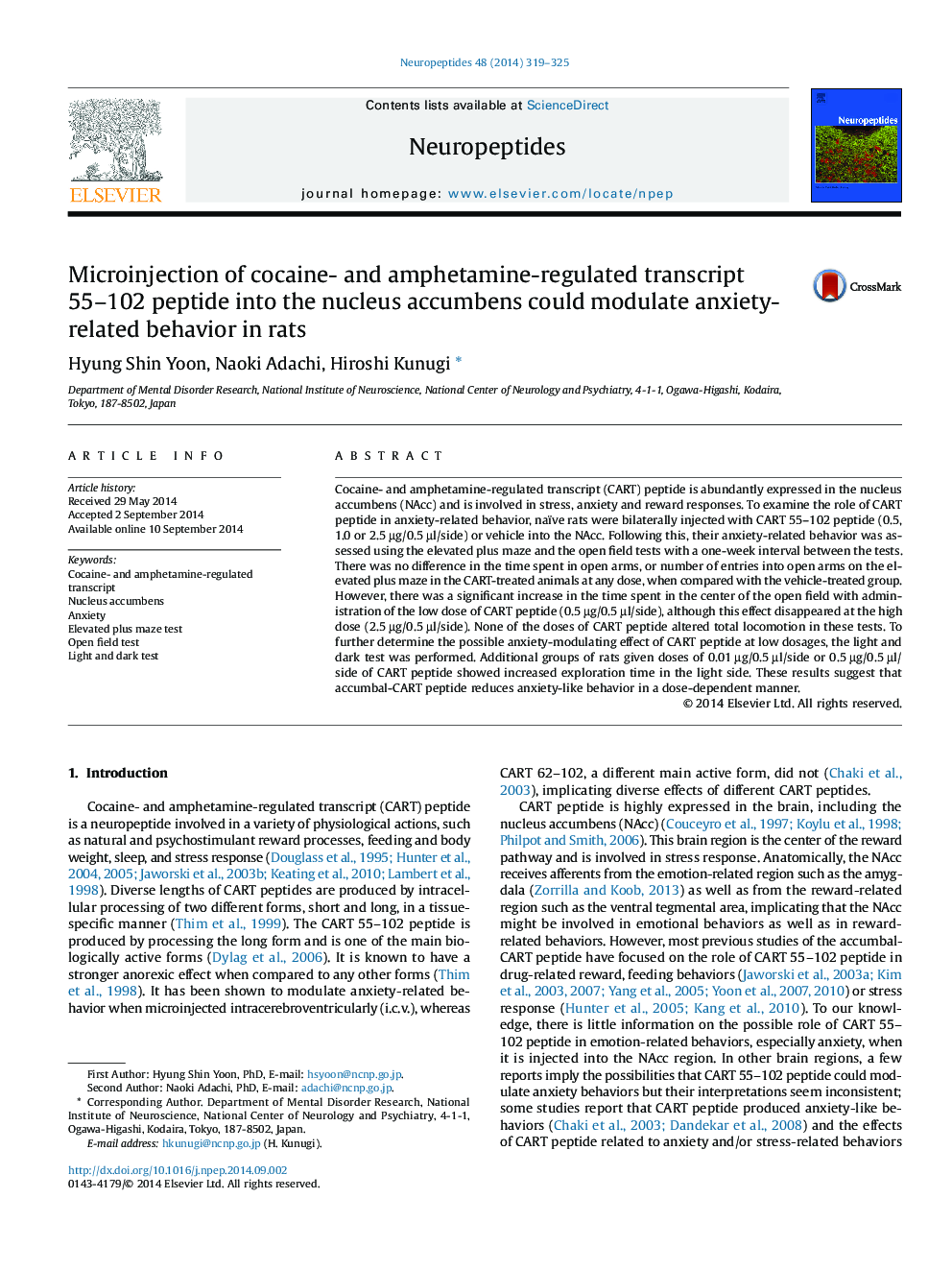| Article ID | Journal | Published Year | Pages | File Type |
|---|---|---|---|---|
| 2808064 | Neuropeptides | 2014 | 7 Pages |
•CART 55–102 peptide was microinjected into the nucleus accumbens.•CART peptide did not change total distance moved in the EP and OF tests.•CART peptide induced an anxiolytic effect in the OF and LD tests, but not in EP test.
Cocaine- and amphetamine-regulated transcript (CART) peptide is abundantly expressed in the nucleus accumbens (NAcc) and is involved in stress, anxiety and reward responses. To examine the role of CART peptide in anxiety-related behavior, naïve rats were bilaterally injected with CART 55–102 peptide (0.5, 1.0 or 2.5 µg/0.5 µl/side) or vehicle into the NAcc. Following this, their anxiety-related behavior was assessed using the elevated plus maze and the open field tests with a one-week interval between the tests. There was no difference in the time spent in open arms, or number of entries into open arms on the elevated plus maze in the CART-treated animals at any dose, when compared with the vehicle-treated group. However, there was a significant increase in the time spent in the center of the open field with administration of the low dose of CART peptide (0.5 µg/0.5 µl/side), although this effect disappeared at the high dose (2.5 µg/0.5 µl/side). None of the doses of CART peptide altered total locomotion in these tests. To further determine the possible anxiety-modulating effect of CART peptide at low dosages, the light and dark test was performed. Additional groups of rats given doses of 0.01 µg/0.5 µl/side or 0.5 µg/0.5 µl/side of CART peptide showed increased exploration time in the light side. These results suggest that accumbal-CART peptide reduces anxiety-like behavior in a dose-dependent manner.
